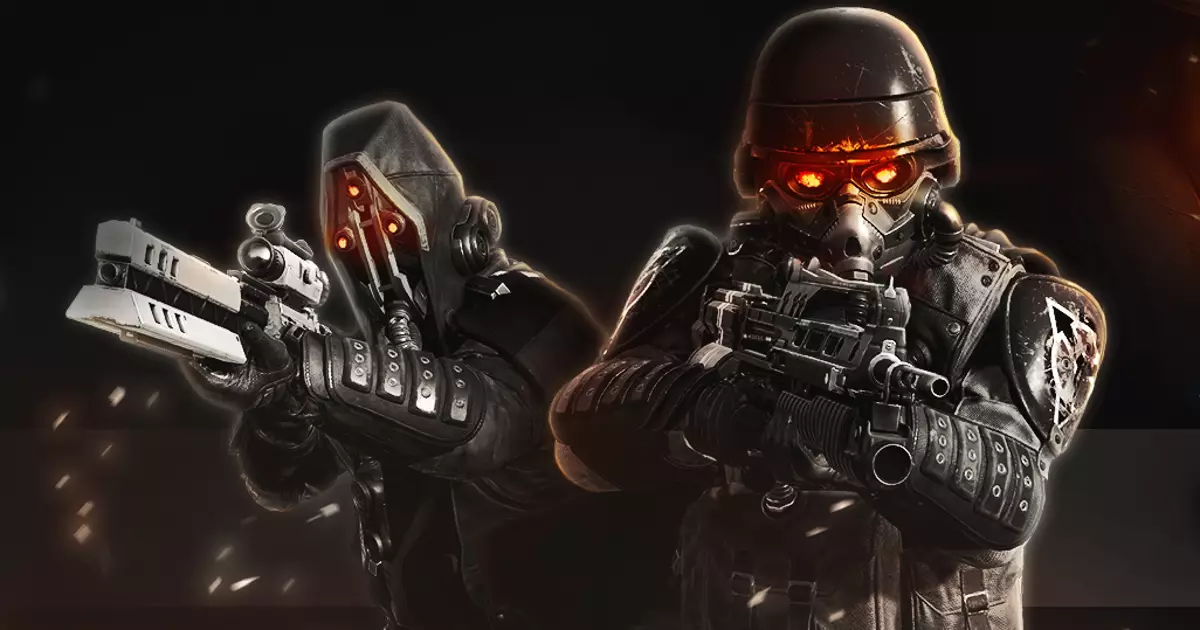In the landscape of video games, certain partnerships raise eyebrows and push boundaries, none more so than the recently announced collaboration between Arrowhead Games’ Helldivers 2 and the Killzone franchise. As Arrowhead unveils its first licensed crossover, they dive into a realm that juxtaposes the very essence of militaristic representation and satire. Indeed, the partnership raises questions not only about game design but also about the underlying narratives that these franchises portray.
By aligning with Killzone—an IP previously defined by its grim portrayal of war—the Helldivers 2 team cautiously steps into a world mired in bloodshed and authoritarianism. The so-called “democratic government” of Super Earth, as portrayed in Helldivers, is steeped in heavy satire, mirroring tropes familiar in classic war narratives. With the inclusion of weapons and cosmetics from Killzone within the Helldivers Superstore, players are invited to adorn their characters with garb reminiscent of the ‘stormtroopers’ who represent some of gaming’s most recognized figures of militaristic oppression.
This duality offers an intriguing exploration of how games communicate complex themes of war and governance, essentially encouraging players to grapple with the absurdity of the power dynamics in both titles. The suggestion that additional Killzone-themed rewards will depend on a player’s success in the Galactic War transcends mere gameplay mechanics, hinting at a deeper commentary on how victory in war is often distilled into trivial rewards, diluting the harsh realities that accompany conflict.
To truly appreciate this crossover, one must first revisit the Killzone franchise’s legacy. Originally designed as Sony’s answer to the iconic shooters such as Halo and Call of Duty, Killzone has certainly had its ups and downs through the years. The controversial launch of Killzone 2 in 2009—accompanied by a heavily criticized E3 trailer—set a high bar that subsequent titles failed to meet, leading to criticisms regarding a persistent decline in originality and engaging gameplay.
Yet, this partnership could signify a revival, recontextualizing Killzone for modern platforms and audiences. Given that many players may have never experienced the franchise on current systems, the introduction of Killzone-themed content into Helldivers 2 could serve as a bridge between gaming generations, introducing a new audience to its once-prominent ethos of sci-fi warfare, while providing the nostalgia factor for long-standing fans.
However, not all feedback has been positive. Within the vibrant community of Helldivers players, there exists a palpable tension surrounding this crossover. Concerns about content pricing and the notion of selling primary weapons as downloadable content (DLC) have left many feeling disgruntled. Players, often dedicated to cooperative gameplay, wonder if these additions will disrupt the balance of the original game’s ethos of teamwork and camaraderie.
In a broader sense, Arrowhead appears to be navigating a delicate line between monetization and ensuring player experience remains intact. The very essence of gaming partnerships is often rooted in creating exciting content collaborations that enhance the gameplay experience, yet such endeavors also risk alienating loyal players if perceived as exploitative.
Looking Ahead: Potential for Further Collaborations
As the gaming landscape continues to evolve, Arrowhead Games appears keen on exploring further partnerships for Helldivers 2. This initial foray into the Killzone universe may just be the beginning, hinting at the potential for a wide variety of crossover collaborations. Should these partnerships maintain a balance between thematic depth and engaging gameplay mechanics, there exists an opportunity to enrich the player experience.
Imagining future collaborations raises intriguing possibilities. What if the acclaimed aesthetics of other franchises were absorbed into the chaotic world of Helldivers? While the potential for missteps exists, the opportunity to provoke thought and discussions surrounding video game narratives, especially those highlighting the absurdities of war, remains tantalizing.
In the end, the thoughtful intersection of Helldivers 2 and Killzone offers a moment for gamers to ponder: can satire and militarism coexist within a single title, and if so, what does that say about our engagement with both the gaming medium and the narratives it fosters? This ridiculous yet earnest marriage may very well be Arrowhead’s way of inviting players to question their roles in digital warfare—an invitation that, for better or worse, no gamer can afford to overlook.


Leave a Reply